01323 928523

Essential Oil Diffusers: A Buyer's Guide for Aromatherapy
Essential oil diffusers spread tiny particles of essential oils into the air. These devices fill your room with nice smells and may help improve your mood or health. With many options available, how do you pick the right one? This guide will help you understand the basics.
| Key Takeaways |
|---|
|
What Are Essential Oil Diffusers?
Essential oil diffusers are devices that spread tiny particles of essential oils into the air. They come in different types, each working in its own way. The main goal is to fill your room with nice smells and possibly improve your mood or health.
Here's a quick look at the main types of diffusers you'll find:
Types of Essential Oil Diffusers
- Ultrasonic Diffusers: Use water and ultrasonic waves to create a fine mist
- Nebulizing Diffusers: Use pressurized air to break oil into tiny particles
- Evaporative Diffusers: Use a fan to blow air through an oil-soaked pad
- Heat Diffusers: Use heat to evaporate oil into the air
Market Share of Essential Oil Diffuser Types
Now that you know the basics, let's look closer at how these diffusers work and which one might be best for you.
How Do Essential Oil Diffusers Work?
Different types of diffusers use different methods to spread essential oils into the air. Let's look at how each type works:
1. Ultrasonic Diffusers: These use water and ultrasonic waves to create a fine mist of essential oil and water. They're quiet and can also add some moisture to the air. The vibrations break up the oil and water into tiny particles, which are then spread into the air.
2. Nebulizing Diffusers: These are the powerhouses of diffusers. They use pressurized air to break the oil into tiny particles and spray them into the air. No water needed! This method keeps the full properties of the oils, making it great for aromatherapy fans.
3. Evaporative Diffusers: These use a fan to blow air through a pad or filter that has essential oil on it. As the air passes through, it picks up the oil and carries it into the room. While simple, this method may not spread the oil parts evenly, as lighter parts evaporate first.
4. Heat Diffusers: These use heat to evaporate the essential oil. They're often the simplest and quietest option, but heat can change the properties of the oil a bit. This method is best for creating a nice smell rather than for health benefits.
Each type has its good and bad points, so think about what's most important to you - strength of smell, noise level, or how much area it can cover. For example, if you want a quiet option for your bedroom, an ultrasonic or heat diffuser might be best. If you want the strongest aromatherapy effects, a nebulizing diffuser could be your top choice.
Choosing the Right Essential Oils
Once you've picked your diffuser, it's time to choose your oils. The quality of your essential oils can really affect your aromatherapy experience. Look for pure, therapeutic-grade oils from trusted sources. Here are some popular options you might want to try:
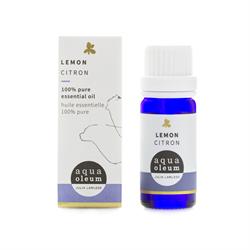
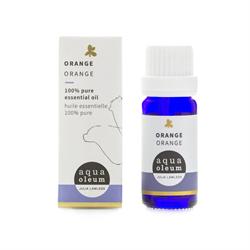
Lemon and orange oils are great choices for beginners. They're refreshing and can help brighten your mood. The Aqua Oleum Lemon Pure Essential Oil (£3.99) has a light, refreshing citrus scent and is great as a detox aid. It can help boost energy and concentration. The Aqua Oleum Orange Pure Essential Oil (£3.99) comes from various places like Brazil, California, Israel, Florida, and Cyprus, giving it a rich, sweet smell. Orange oil is known for its uplifting and calming properties, making it great for reducing stress and worry.
Explore our range of essential oils to find your perfect scent!
How to Use Your Diffuser
Using your diffuser is easy, but there are a few things to keep in mind to get the most out of your aromatherapy experience:
1. Fill it up: For ultrasonic diffusers, fill the water tank to the line. Use room temperature water for best results. For other types, follow the instructions that came with your diffuser. Some nebulizing diffusers, for example, may need you to attach the oil bottle directly to the unit.
2. Add the oil: Start with just a few drops. You can always add more if you want a stronger scent. A good rule is 3-5 drops for every 100ml of water in an ultrasonic diffuser. For nebulizing diffusers, you might use even less as they're stronger.
3. Turn it on: Set your diffuser to run for about 30 minutes to an hour at a time. This is usually enough to scent a room without overdoing it. Many diffusers have built-in timers to help with this.
4. Place it right: Keep your diffuser on a flat surface, away from walls and furniture. Make sure there's good airflow around it. This helps the scent spread evenly throughout the room. Avoid placing it near air conditioning or heating vents, as this can affect how the mist spreads.
Remember, you don't need to use your diffuser all day. A little goes a long way with essential oils! It's often best to use your diffuser in intervals, giving your nose a break to prevent getting used to the scent.
Mixing Oils: Creating Your Own Blends
Once you're comfortable with single oils, why not try mixing them to create your own unique scents? Blending oils can create complex smells and combine different health benefits. Here are some premium oils that are great for blending:
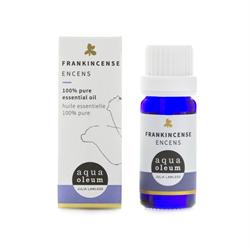
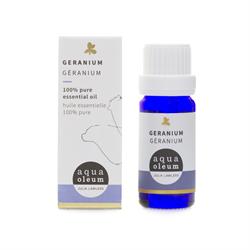
Aqua Oleum Frankincense Pure Essential Oil (£13.99) comes from the Arabian Peninsula and has a deep, warm scent. It's known for its calming and grounding properties, making it excellent for meditation and relaxation. Aqua Oleum Geranium Pure Essential Oil (£7.99) is from Egypt and has a sweet, floral smell. Geranium oil is often used for its balancing effects on both mind and body. Try mixing these with citrus oils for a complex, uplifting blend. For example, a blend of frankincense, geranium, and orange can create a warm, floral scent with mood-boosting properties.
When creating blends, start with a 1:1 ratio and adjust according to what you like. Remember that some oils have stronger scents than others, so you may need to experiment to find the right balance.
Keeping Your Diffuser Clean
To keep your diffuser working well and smelling great, you need to clean it regularly. Regular cleaning prevents build-up of oil residue and bacteria, ensuring your diffuser continues to work well and safely. Here's a quick guide:
| Cleaning Step | Frequency | Importance | Status |
|---|---|---|---|
| Wipe down with damp cloth | After each use | High | Essential |
| Use mild dish soap | Weekly | Medium | Recommended |
| Rinse thoroughly | After cleaning | High | Essential |
| Dry completely | After cleaning | High | Essential |
| Deep clean | Monthly | Medium | Recommended |
For most diffusers, a simple wipe down with a cloth dampened with water and a drop of mild dish soap will do the trick. Just make sure to rinse well and dry completely before using again. For a deep clean, you can use a mixture of equal parts water and white vinegar. Run this solution through your diffuser for about 5-10 minutes, then rinse thoroughly and dry.
Safety First: Using Essential Oils Responsibly
While essential oils are natural, they're also very concentrated. It's important to use them safely to avoid any bad reactions. Here are some safety tips to keep in mind:
Dilute Properly
Always mix essential oils with a carrier oil before putting on skin
Patch Test
Try a small amount on your skin to check for allergic reactions
Keep Away
Store oils where children and pets can't reach them
Research
Learn about each oil's effects before using it
If you're new to essential oils, start with gentle, well-known oils. Here are two good options for beginners:
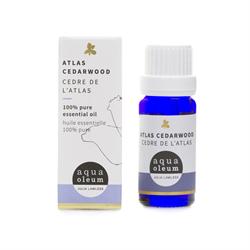
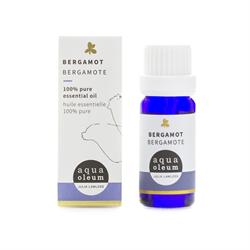
Aqua Oleum Cedarwood Pure Essential Oil (£4.99) is comforting and soothing. It can help ease coughs and even works as an insect repellent. Its woody scent is grounding and can promote feelings of stability and strength. Aqua Oleum Bergamot Pure Essential Oil (£6.99) is uplifting and can help ease low mood. It has a fresh, citrusy scent that's known to reduce stress and improve skin conditions.
When using these or any essential oils, always follow the recommended dilution rates and never apply them directly to your skin without a carrier oil. If you're pregnant, nursing, or have any medical conditions, ask a doctor before using essential oils.
Wrapping Up: Your Essential Oil Diffuser Adventure
Essential oil diffusers can be a great addition to your home, offering nice smells and potential wellness benefits. They can help create a relaxing atmosphere, improve sleep quality, boost mood, and even provide some health benefits like clearing sinuses or repelling insects. Remember to choose the right type for your needs, use high-quality oils, keep your diffuser clean, and always follow safety guidelines.
Whether you're looking to relax after a long day, boost your mood on a gloomy morning, or just enjoy some nice smells while you work, there's an essential oil and diffuser combo out there for you. Try different oils and blends to find your perfect aromatherapy mix. Don't be afraid to try seasonal scents or create your own signature blend!
As you start your aromatherapy journey, remember that using your diffuser regularly can help you get the most benefits from your essential oils. Happy diffusing!
Start your aromatherapy journey with our essential oil kits and discover the wonderful world of scents and wellness.
